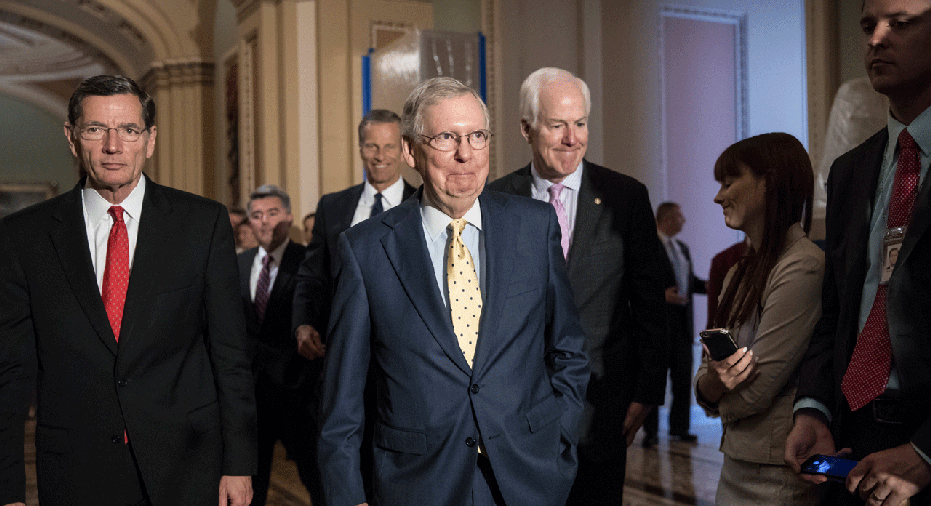Republicans divided over next healthcare steps after new setback

Republicans in the U.S. Congress were in chaos over healthcare legislation after a second attempt to pass a bill in the Senate collapsed late on Monday, with President Donald Trump calling for an outright repeal of Obamacare and others seeking a change in direction toward bipartisanship.
"Regretfully, it is now apparent that the effort to repeal and immediately replace the failure of Obamacare will not be successful," Senate Majority Leader Mitch McConnell said in a statement.
Two of McConnell's Senate conservatives announced just hours earlier that they would not support the Republican leader's latest version of legislation to repeal portions of President Barack Obama's landmark 2010 healthcare law and replace them with new, less costly healthcare provisions.
With Senators Mike Lee and Jerry Moran joining Senators Susan Collins and Rand Paul in opposition, McConnell no longer had enough votes to pass a Republican healthcare bill in the 100-member Senate.
The developments had an immediate impact on financial markets as Asian shares stepped back from more than two-year highs on Tuesday and the dollar extended losses.
In the United States, the latest setback delivered a major blow to Trump, who has failed to win any major legislative initiative in the first six months of his presidency.
In response, Trump said on Twitter Congress should immediately repeal Obamacare and "start from a clean slate" on a new healthcare plan. He said Democrats would join such an effort, even though they have refused to have any part of an Obamacare repeal.
McConnell, apparently backing Trump's latest approach, announced that he would try to bring legislation to repeal Obamacare to the Senate floor in coming days, but with a two-year delay in implementation to assure a smooth transition.
The idea was rejected by Republicans months ago in favor of simultaneously repealing and replacing Obamacare.
Republican Senator John McCain, who is recovering from surgery in his home state of Arizona, urged a much different change of course - bipartisanship.
"The Congress must now return to regular order, hold hearings, receive input from members of both parties" and pass a bill that "finally provides Americans with access to quality and affordable health care," McCain said in a statement.
It was not yet clear whether Republicans would be able to fall in line behind the latest Trump-McConnell plans or McCain's prescription.
Republicans in Congress had been hoping to settle on a healthcare bill before an upcoming August recess so they could begin work in earnest in September on a wide-ranging rewrite of the U.S. tax code.
House of Representatives Speaker Paul Ryan had no immediate comment on the next steps he would like to see following the collapse of the healthcare bill in the Senate.
(Writing by Richard Cowan, additional reporting by Susan Cornwell, Steve Holland and James Oliphant; Editing by Paul Tait)



















